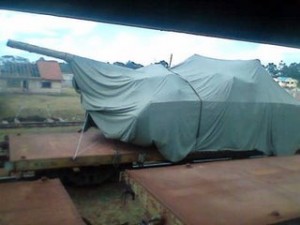This last post on Kenyan real estate produced a ton of great feedback, hence another one.
Home Expo
The 2008 Home Expo took place over the weekend at KICC, which was nice to attend, though it was strange that there was a simultaneous one (for home interiors?) as Sarit Center over the same weekend/period
Financers
– Standard Chartered: Up to 90% finance, Up to 20 year loans, decision in 48 hours. Also offer equity release loans
– Barclays: 14.5% interest rate, 10% down payment (reduced from 15%), and loans up to 20 years
– Housing Finance: have Start up plan (12 to 20 years),
House plan (5 to 12 years) and Ace plan (<5 years) loans for owner occupied, investment residential, equity release & top up, construction loans, residential plots, buy a plot & build.
– S&L: interest of 14% variable or 15% fixed, loans for individuals can be up to 25 years, while for companies & investment/rentals is 10 years, and estate development , just 2 years. In major towns they finance up to 90% for owner occupied and 80% for income generating properties (i.e. 20% down payment); while for rural properties it is 70% for owner occupied and 60% for income generating
Savings: S&L and the banks have various savings plans, while Bora real estate investment management (BREIL) were also represented with a plan starting at Kshs. 10,000 ($135)
Insurance: AIG Kenya were notable marketing home insurance packages that escalate to match the appreciating cost of home repair, include a domestic employee cover (DYK employers are liable in their house maids are injury or die?) and also cover the cost of trauma in the event of an attempted home theft.
Home Internet: Zuku (from Wananchi) vs. net@home vs. Broadband hotspots from Safaricom
Solar heating: at a time of record domestic electricity bills for consumers, alternative energy (mainly solar) products were on offer from Davis & Shirtliff, Solar Exide, and Sharp.
From the Blogs
– Funny Money Kenyan Entrepreneur questions the growing debt burden in Kenya, some of which is rel estate real estate, arguing that the numbers don’t add up. Meanwhile, there’s an offline article in the East African by Joachim Buwembo that attributes the rapidly growing and appreciating real estate markets in east Africa in part to hot money that previously used to fly to Swiss bank accounts
– John McCain has 7 homes: I’m partial to Fahari Estate but this post by MainaT raises an interesting point about other towns (e.g. Nyeri, Kericho, Malindi) worthy of real state investment, for work or retirement.


